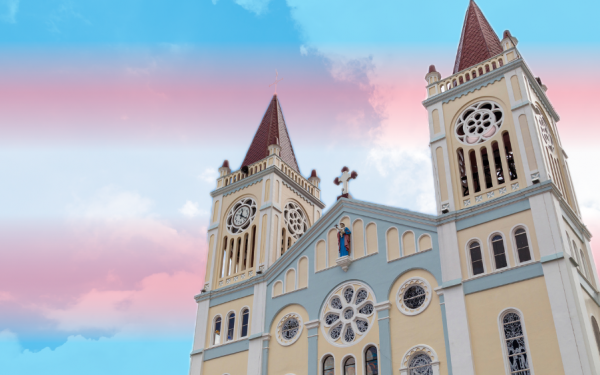Anti-LGBT Sentiment in Africa and Asia: A Legacy of Colonialism?
LGBT Rights Conference at Concordia Commences with Keynote Address, Panel Discussion on Impacts of Colonization
Much of the present-day anti-LGBT sentiment in Africa and Asia stems from Western colonization, four academics argued during a panel discussion at Concordia.
Monday marked the start of a two-day academic conference on LGBT rights organized by the Trudeau Foundation and the Centre Jacques Cartier. Titled “Imagining the Future of LGBTQ Human Rights,” the conference is tackling topics ranging from the criminalization of LGBT communities to marriage equality.
One panel held on Monday focused on the relationship between colonialism and LGBT rights, with the panellists agreeing that one of colonialism’s legacies has been the ongoing criminalization of homosexual acts in many former colonies.
The panel included Germano Vera Cruz, a psychology professor in Mozambique; Fernando Chang-Muy, a professor specializing in refugee law at the University of Pennsylvania; Nehraz Mahmud, a doctoral candidate in anthropology from Bangladesh; and David Paternotte, a sociology professor at Université libre de Bruxelles.
“[When] the United Kingdom colonized its former colonies, for example in Africa, they left behind sodomy laws which previously did not exist. So, definitely, there’s an importation of Western thought, but it’s not an importation of gay liberation—it’s an importation of anti-gay sentiment,” said Chang-Muy.
Mahmud offered her native country as an example of a former colony that inherited anti-gay laws, referencing Section 377 of the Bangladeshi penal code, which allows for life imprisonment with or without hard labour for partaking in any same-sex intercourse.
“This penal code is […] the most disturbing part that prohibits any kind of movement for LGBTQ rights [in Bangladesh],” she said.
Mahmud also spoke about her belief that countries like Bangladesh choose to ignore their LGBT population and pretend there are no problems to be resolved. She noted that global political pressure may improve the situation there.
Paternotte warned about the effects of putting too much pressure on individual nations, however. He suggested that it’s possible too strong a push would encourage the leaders of these countries to align themselves with other corrupt world leaders.
Near the end of the panel discussion, Chang-Muy discussed the need to treat LGBT communities in different countries as individuals with varied needs, suggesting that a one-size-fits-all approach would set progress back.
Earlier in the day, the conference opened with a keynote address by Joke Swiebel, a former member of the European Parliament, who spoke about the history and internationalization of LGBT rights.
Swiebel discussed the transformation of the LGBT movement from its early beginnings in the 1950s, when the goals were societal tolerance and acceptance, to the movement of today, which argues that gay rights are fundamental human rights.
“My professional conclusion is that speaking of sexual orientation issues and gender identity issues in terms of human rights is not self-evident,” she said. “It was an invention, it was a strategic decision, and it was also a political fight.”
She elaborated on the legal status of homosexuality around the world, noting that there are 87 countries where it is illegal. At least five of these countries punish homosexual acts with the death penalty.
Swiebel hypothesized that anti-LGBT action across the globe is generally used as a tool of political repression.
“I think that LGBT rights have become a key indicator of a global fight between two different views of the world: one based on individual freedom […] and respect for diversity, and one based on totalitarianism, nationalism, and religious fanaticism,” she said.

_900_597_90.jpg)

(WEB)_600_375_90_s_c1.jpg)
_600_375_s_c1.png)
2_600_375_90_s_c1.jpg)
